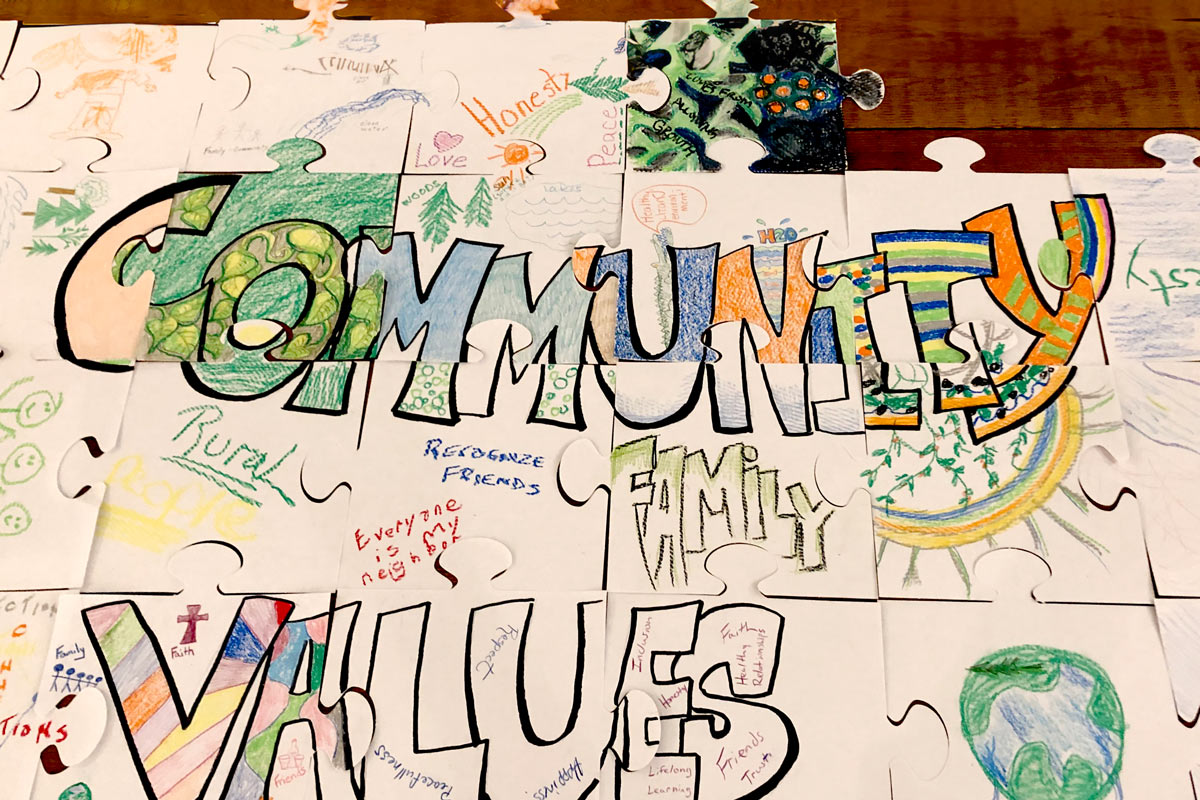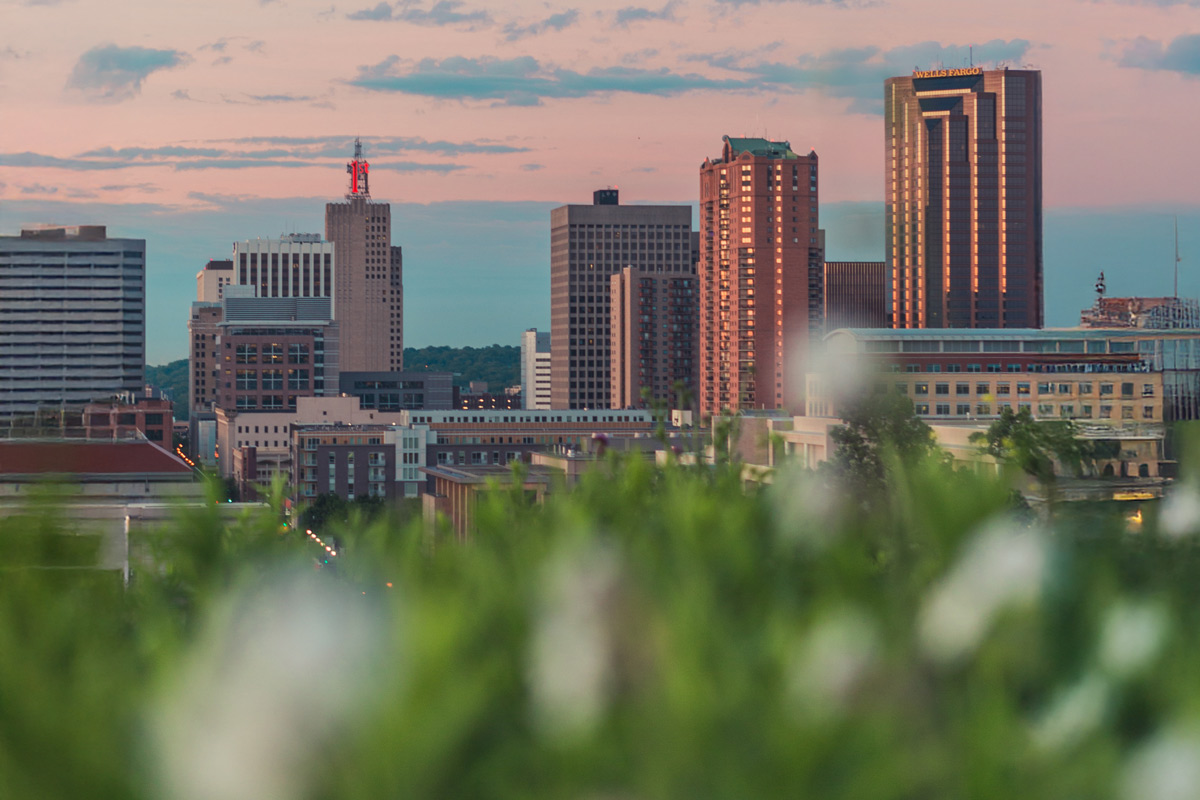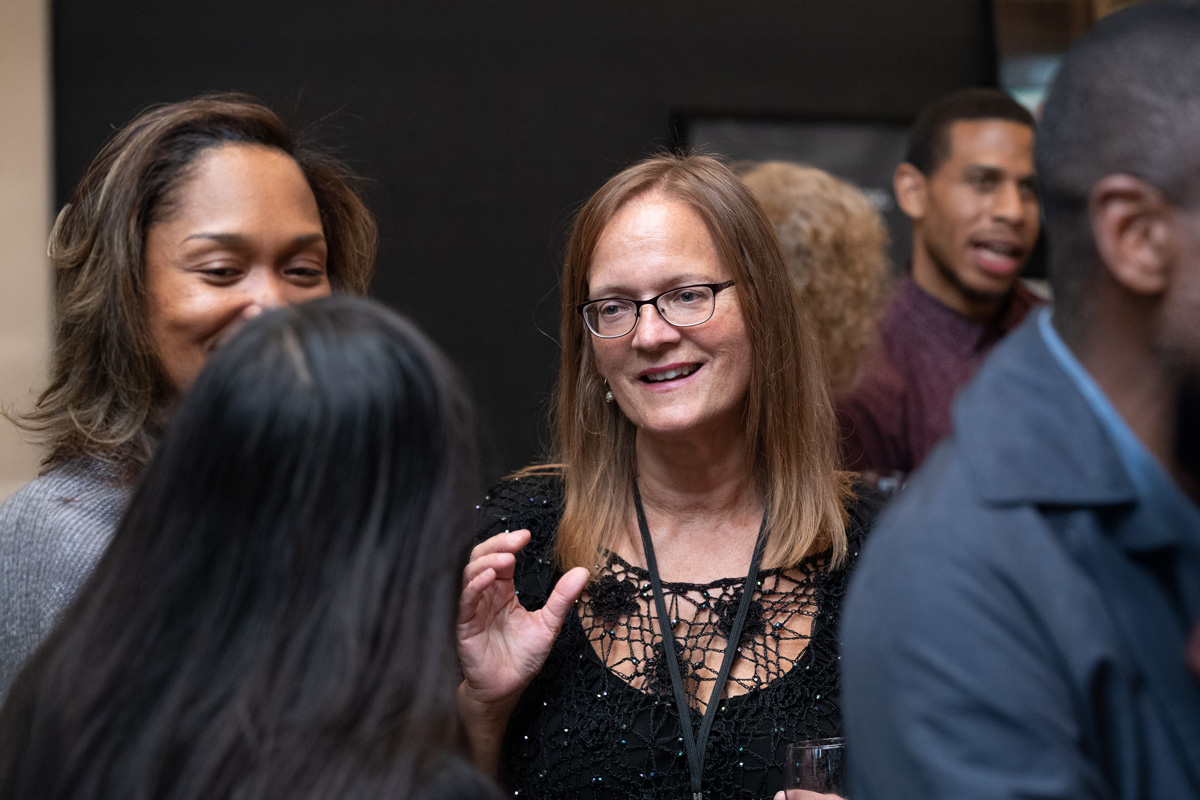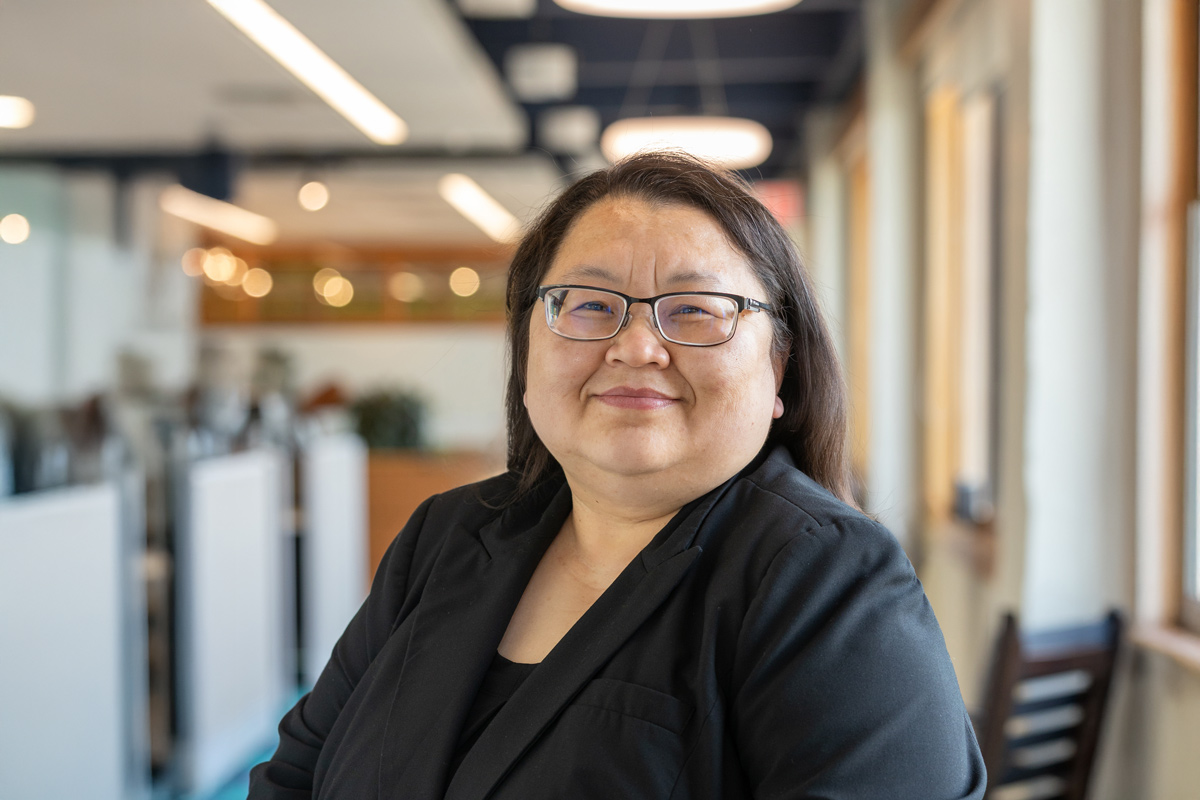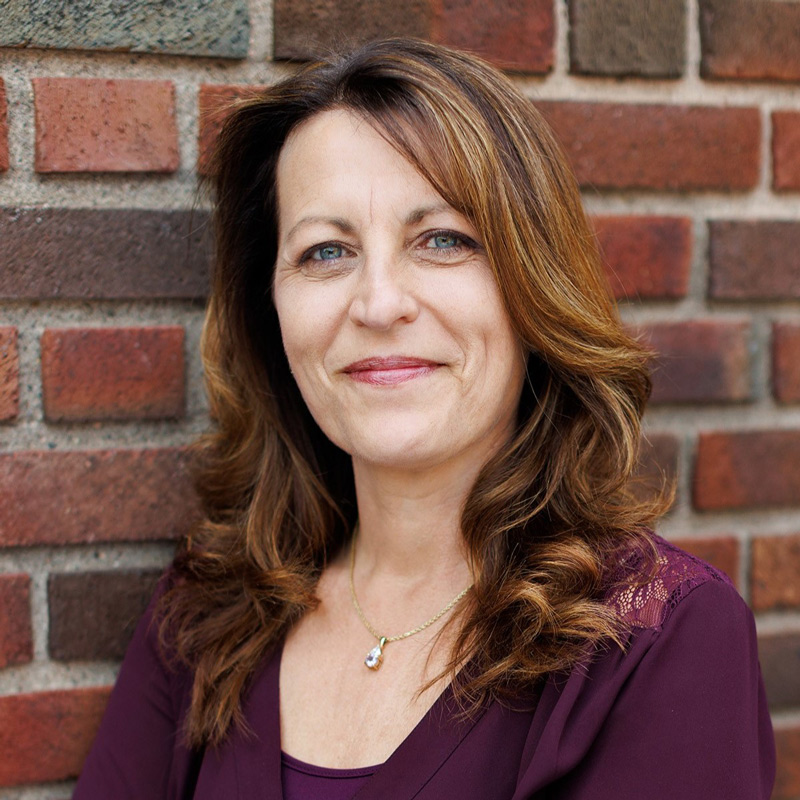
“Employees are more likely to stay where they feel welcome, where they feel part of the community.”
Cheryal Hills
Executive Director, R5DC
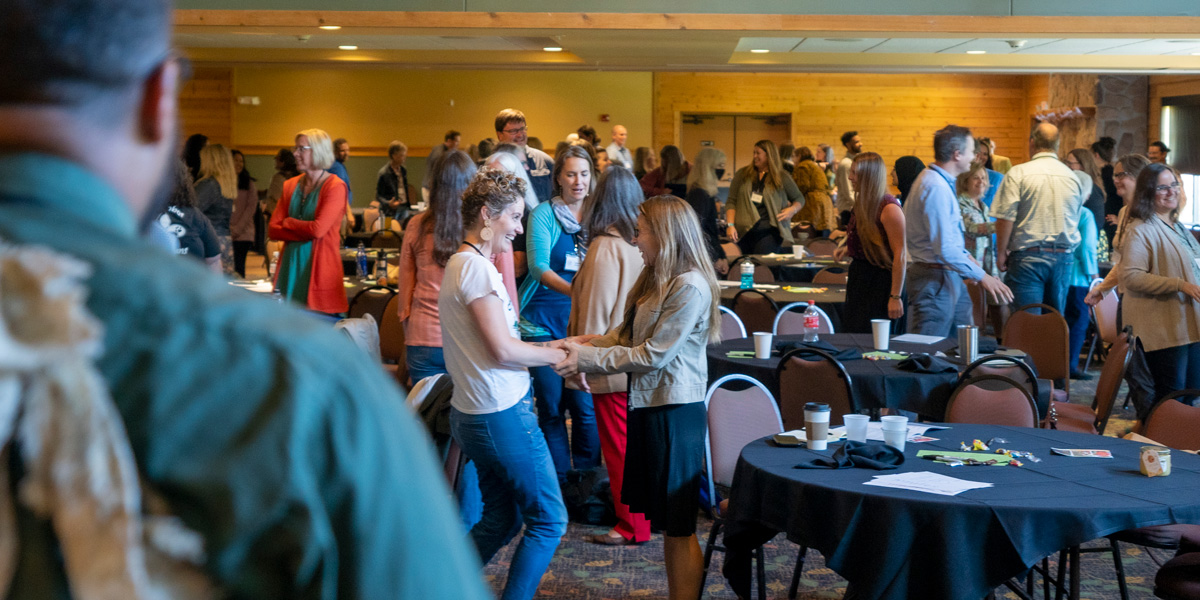
Attendees at R5DC’s 2022 Cultivating Communities Summit, which included two days of workshops focused on diversity, equity, and community. Photo courtesy of R5DC.
America’s rural communities and small towns aren’t only nuclear families of generational white farmers. They’re a kaleidoscope of populations, including Native Americans and others in the Foundation’s priority communities.
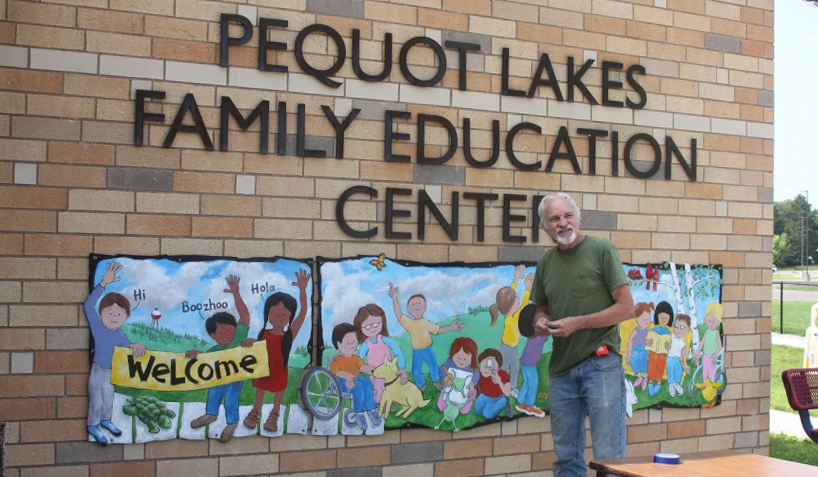
Kevin Olson, a Pequot Lakes, MN, artist, stands near his mural, installed in 2023 as part of an advocacy group project at the Pequot Lakes Family Education Center. Photo courtesy of R5DC.

